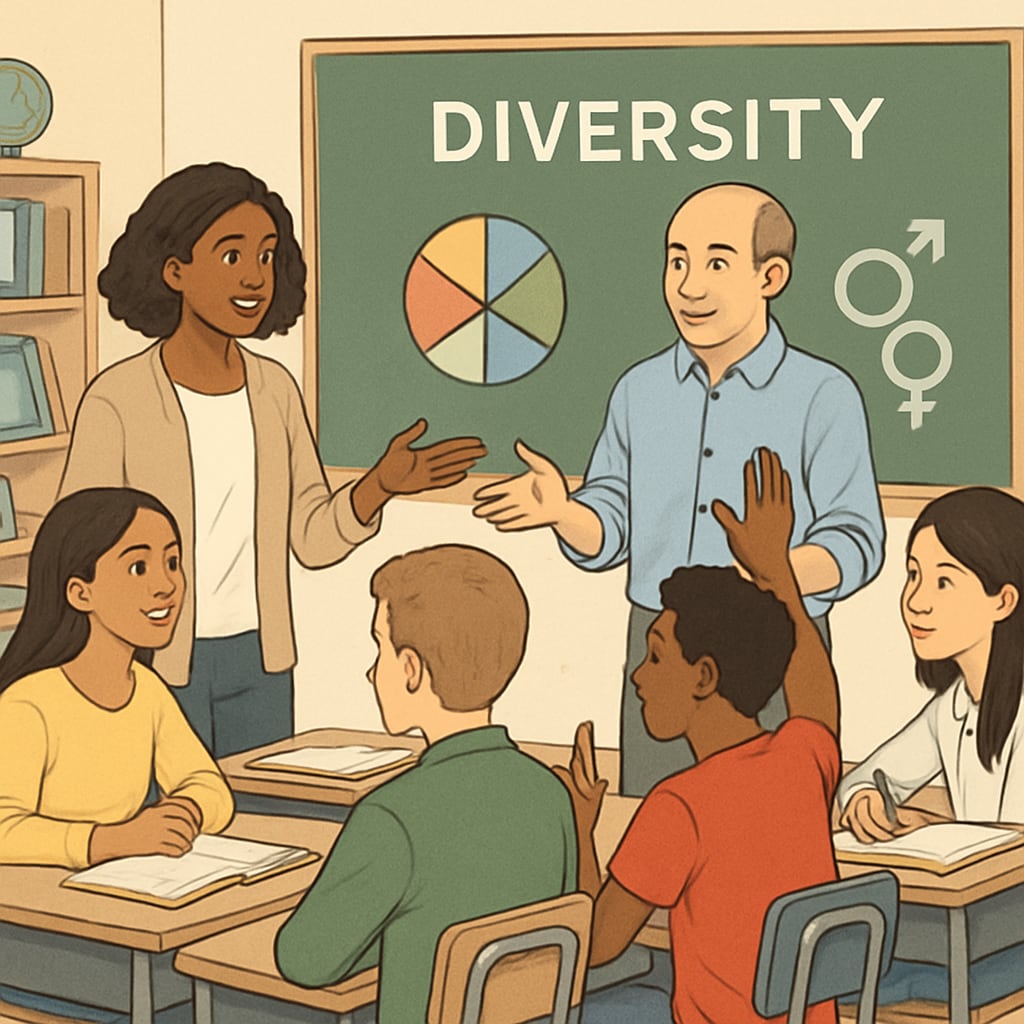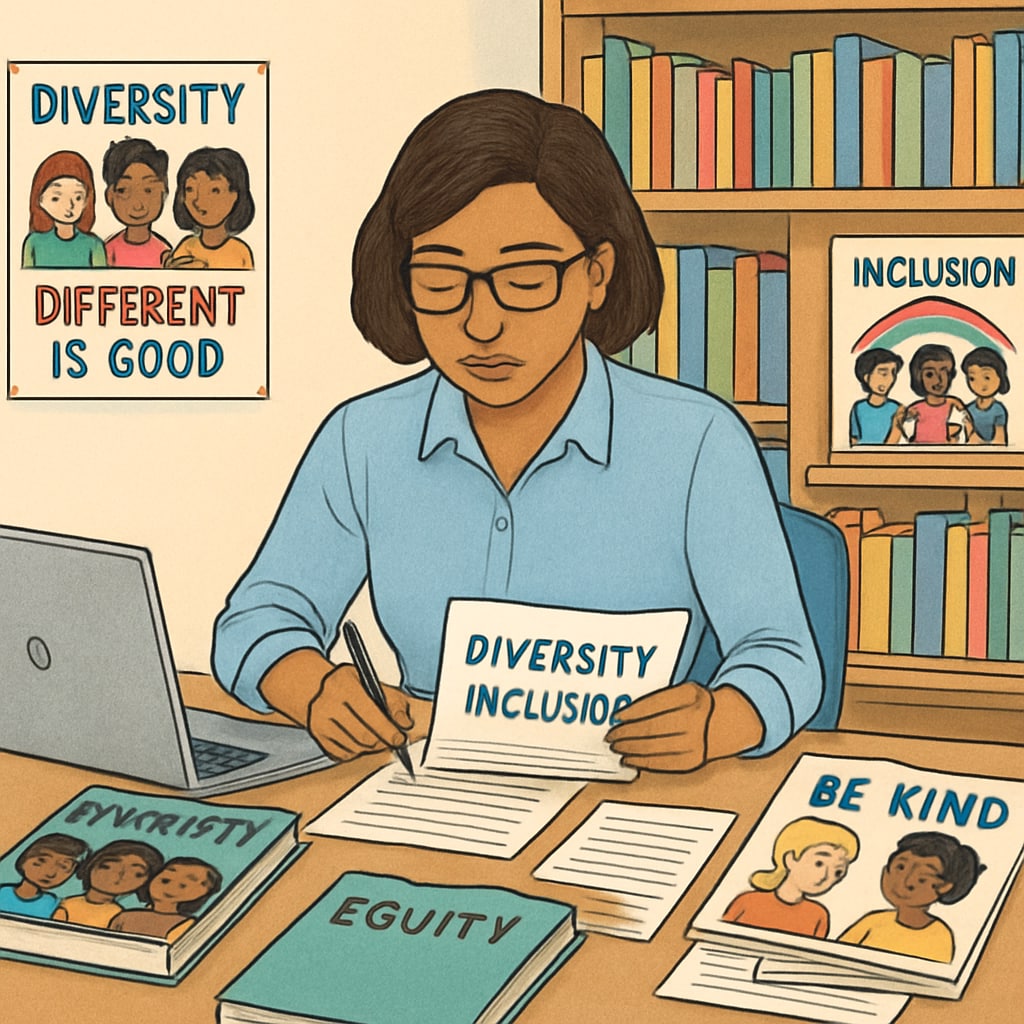In recent years, conservative organizations have increasingly utilized public records requests to scrutinize diversity courses at universities. This growing trend has started to extend into K-12 education, sparking debates about the role of public accountability and the preservation of academic freedom. Educators and policymakers are now faced with the complex challenge of navigating these pressures while maintaining an inclusive and unbiased educational environment.

How Public Records Requests Are Impacting Diversity Education
Public records requests allow individuals and organizations to access documents, emails, and other materials from publicly funded institutions. While these laws are designed to promote transparency, they are increasingly being used by conservative organizations to obtain detailed information about diversity-related course content, training materials, and curriculum. For example, some groups have requested access to lesson plans, teacher communications, and even student feedback on diversity programs.
Proponents of these requests argue that they ensure transparency and hold educators accountable for teaching materials funded by taxpayer dollars. However, critics claim that such actions amount to a form of ideological oversight, potentially discouraging educators from addressing critical topics like racial equity, gender inclusion, and cultural competence. As a result, many teachers and administrators feel caught in a tug-of-war between public accountability and the freedom to provide a comprehensive education.
Broader Implications for K-12 Education
What began as a university-level phenomenon is now trickling down into K-12 schools. Public school systems, which already face significant scrutiny from parents and local communities, are particularly vulnerable to the politicization of educational content. Diversity courses, which aim to foster understanding and empathy among students, have become a focal point for these debates.
In K-12 settings, the implications of public records requests are far-reaching:
- Chilling Effect: Teachers may avoid addressing sensitive but essential topics due to fear of backlash.
- Administrative Burden: Responding to these requests often requires significant time and resources, diverting attention from educational priorities.
- Curriculum Limitations: Schools may limit or exclude diversity-related content to avoid controversy.
For example, a recent case in a Midwest school district saw educators revising their diversity training programs after receiving multiple public records requests. These changes, while addressing community concerns, also raised questions about whether external pressures are undermining the integrity of educational content.

Balancing Academic Freedom and Public Accountability
The intersection of academic freedom and public accountability is a delicate balance. On one hand, public institutions have a duty to remain transparent and responsive to the communities they serve. On the other hand, educators must retain the freedom to teach critical topics without fear of censorship or undue influence.
To navigate this balance, schools and policymakers can consider the following strategies:
- Clear Guidelines: Establish transparent policies outlining how public records requests will be handled, including protecting sensitive information.
- Community Engagement: Proactively engage parents and community members in discussions about the value of diversity education.
- Professional Protection: Provide legal and institutional support to educators facing scrutiny over curriculum choices.
- Education on Public Records Laws: Train school staff on their rights and responsibilities under public records laws.
By fostering a collaborative environment that values both transparency and academic freedom, educational institutions can better address these emerging challenges.
The Path Forward for Diversity Education
As scrutiny over diversity-related content continues to grow, the educational community must remain vigilant in defending the principles of inclusivity and academic integrity. While public records requests are a legitimate tool for ensuring accountability, their misuse risks stifling critical conversations that prepare students for a diverse and interconnected world.
The path forward requires a commitment to open dialogue, mutual understanding, and a shared vision for the role of education in society. By working together, educators, policymakers, and communities can ensure that diversity education remains a cornerstone of the learning experience, free from undue political influence.
Ultimately, the success of diversity education depends on the ability of schools to navigate these tensions with integrity and resilience. As these debates continue, the educational landscape will need to adapt, ensuring that the next generation benefits from an education that is both inclusive and unafraid to tackle complex issues.
Readability guidance: This article uses short paragraphs, lists, and clear headings to enhance readability. It balances active voice and passive voice while maintaining an accessible yet professional tone.


